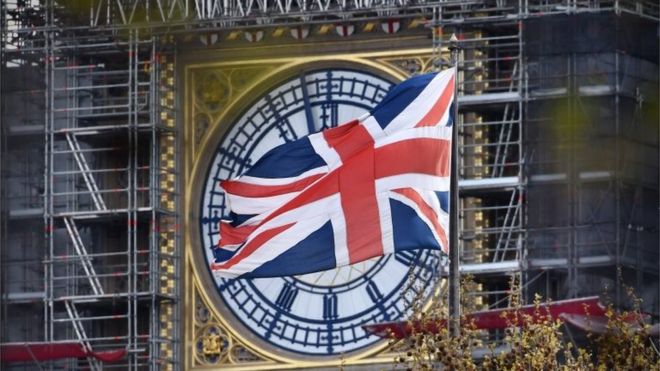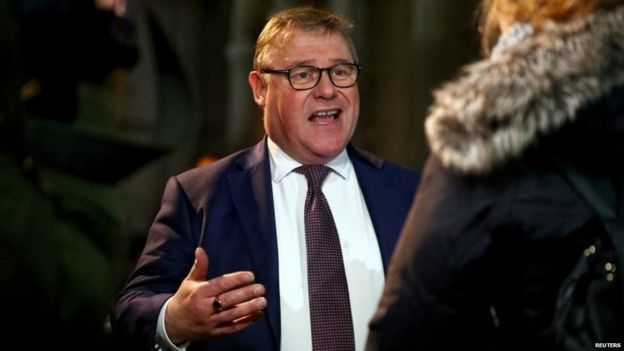MPs will resume scrutiny later of the legislation needed to implement the prime minister's Brexit deal.
7 Jan 2020 7 hours ago

Boris Johnson's election victory means the Withdrawal Agreement Bill is set to get through Parliament comfortably, MPs having overwhelmingly backed it at its first stage last month.
The bill covers "divorce" payments to the EU, citizens' rights and customs arrangements for Northern Ireland.
The UK is set to leave the EU on 31 January.
Theresa May - Mr Johnson's predecessor in Downing Street - repeatedly failed to get her Brexit deal passed by MPs which led to her resignation as prime minister.
But before Parliament closed for the Christmas recess, MPs gave initial approval to Mr Johnson's bill by 358 votes to 234.
What will MPs debate?
The bill now moves on to the next phase of the parliamentary process, what is known as the committee stage. It will be analysed in detail over the next three days before moving to the Lords.
With the government enjoying a Commons majority of 80, it will not be changed in any way without the support of ministers.
On Tuesday, MPs will debate the 11-month transition period after 31 January, in which the UK will cease to be an EU member but will continue to follow EU rules and contribute to the EU's budget.
The purpose of the transition period is to give time for the UK and EU to negotiate their future relationship.
The UK has said this can be done by the end of 2020 and the bill rules out extending the transition period beyond that point - even if a free trade deal with the EU has not been agreed.
 REUTERS
REUTERS
Labour are proposing amendments to ensure Parliament and the devolved nations are consulted during trade talks with the EU, while it also wants the government to aim for close alignment with the EU during the negotiations.
And the SNP have put down an amendment which would exempt Scotland, which voted to stay in the EU, from the provisions of the bill.
MPs will also debate citizens' rights, with Labour, the SNP and the Lib Dems all having submitted amendments seeking to guarantee the rights of the three million or so EU nationals resident in the UK.
Opposition MPs will also call on the government to ensure child refugees can be reunited with family members after the UK leaves the EU - a move campaigned for by Labour's Lord Alf Dubs.
Two Conservative MPs - Mark Francois and Nigel Evans - are proposing an amendment which would require Big Ben to chime at 23:00 GMT on 31 January - the moment the UK is set to leave the EU.
Since the Conservatives' election win, a number of changes have been made to the bill including:
- allowing UK courts to reconsider European Court of Justice rulings that have been retained in UK law after Brexit
- removing clauses related to workers' protections - which the government says will be dealt with in other legislation
- removing the requirement for the government's negotiations with the EU position to be approved by MPs
https://www.bbc.com/news/uk-politics-51014639?